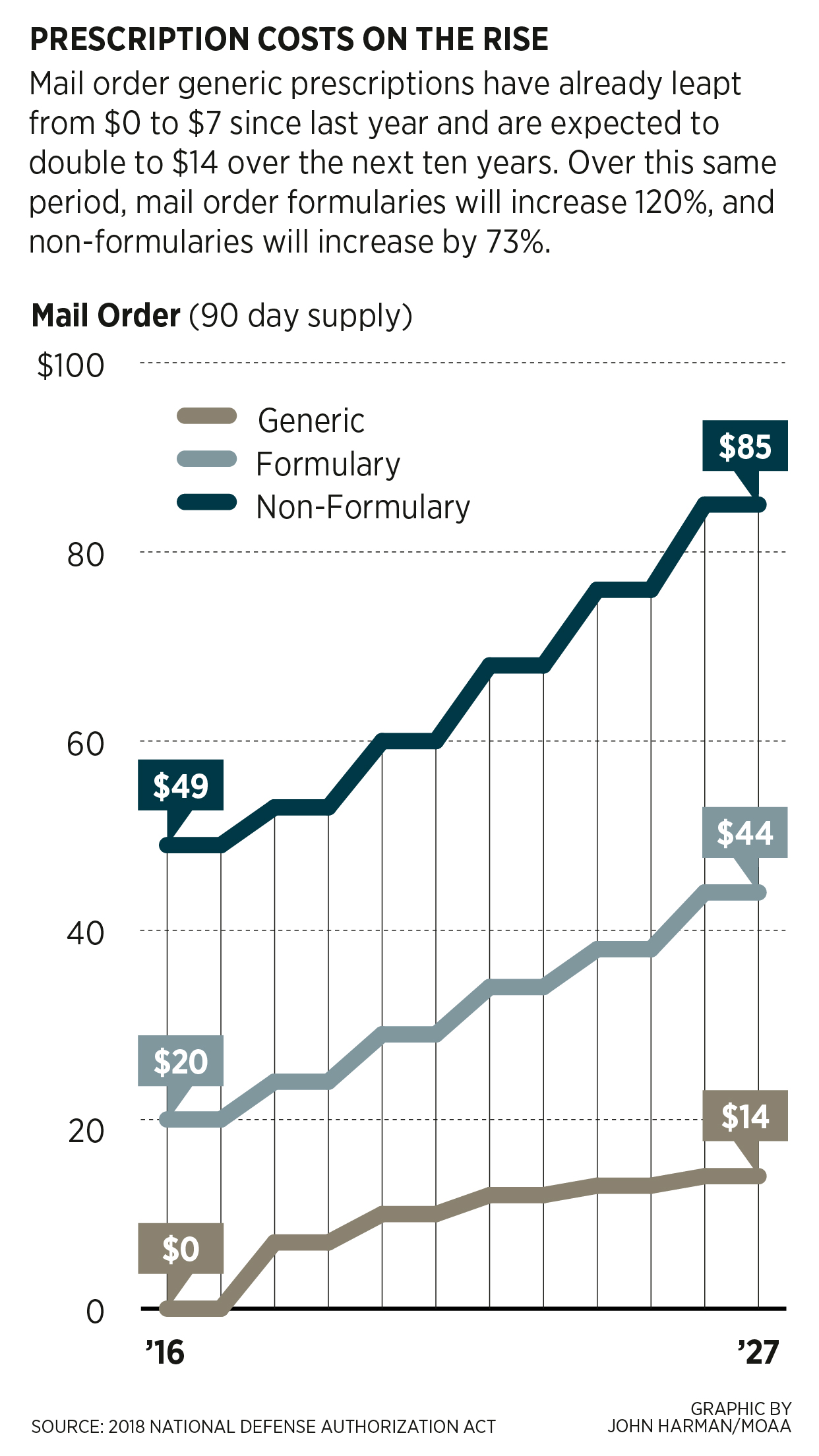We asked, and you answered: Over 8,000 military beneficiaries responded to MOAA's most recent health care survey, which ended in January. And we heard an earful!
The trends noted in last year's survey have shown even greater increases and continue to indicate TRICARE beneficiaries are dissatisfied with certain aspects of the TRICARE program. Of those who responded to the survey, 68 percent received their care with a civilian provider and 16 percent through a military treatment facility.
This graphic shows changes between the December 2017 and December 2018 surveys:
.jpg) Key findings include:
Key findings include:
- A notable decrease in overall program satisfaction experienced by beneficiaries using both TRICARE Select (a decrease of 10 percent) and Prime (a decrease of 12 percent). TRICARE for Life beneficiaries continue to maintain high levels of satisfaction.
- Most beneficiaries continue to be less satisfied with the cost of their care. TRICARE Select beneficiaries lead the way with 45 percent of respondents indicating some level of dissatisfaction. Changes to the TRICARE Pharmacy program have also impacted beneficiaries' satisfaction with the cost of their medications. All beneficiary categories show significant decreases.
- Active duty families were more likely to defer or cancel appointments and medications due to cost concerns than average. While 90 percent of respondents had never canceled an appointment or prescription, 81 percent of active duty families had.
A small representation of close to 4,000 write-in survey comments reveal a sense of anxiety and frustration many beneficiaries feel about the changes they have incurred with TRICARE fees and access to care:
“Access to same day appointments unavailable at Eisenhower GA so families are forced to visit civilian Urgent Care at a $30 copay. Access to routine appointments that should be within 7 days take 3-4 WEEKS - cost-shares of appointments such as speech went up from $12 to $30. Forced us to cancel MANY appointments for our daughter! Unable to afford Urgent Care appts AND speech appts AND pay for medications needed in retail pharmacy.”
"Can NEVER get a timely appointment at our military treatment facility - Referral cost increase -- $12 to $30 -- ridiculous; basically a tax hike.”
"Tricare Prime costs went up which is fine but access to care went down. We basically have to pay more for less. Can't afford therapies and medications. Skip appointments and no longer refill medications because we can't afford them."
"$30 each visit to physical therapy. Adds up when 15-20 visits required!! Also adding to cost is the $35/month MEDICARE increase.”
“$41.00 cost per any referral out to specialist is absurdly high any prohibits me from making MANY necessary appointments. 10 physical therapy sessions in one month means I have to pay $410 out of pocket that month and I cannot afford it. Second, those are preventative medicine/therapy. That means when I don't do them, I am ultimately just making things worse down the road. It would be cheaper for me to just have surgery.”
 MOAA has surveyed the military beneficiary population for over a year. Analyzing the data shows a majority of beneficiaries view their TRICARE benefit as one for which they are paying more and receiving less. Forgoing needed medical care and medications is not the health care benefit they thought they were getting.
MOAA has surveyed the military beneficiary population for over a year. Analyzing the data shows a majority of beneficiaries view their TRICARE benefit as one for which they are paying more and receiving less. Forgoing needed medical care and medications is not the health care benefit they thought they were getting.
These surveys allow MOAA to accurately portray the effects these policies will have on beneficiaries. MOAA will continue its outreach and continue pressing for changes, while fighting any new disproportionate cost shares.

